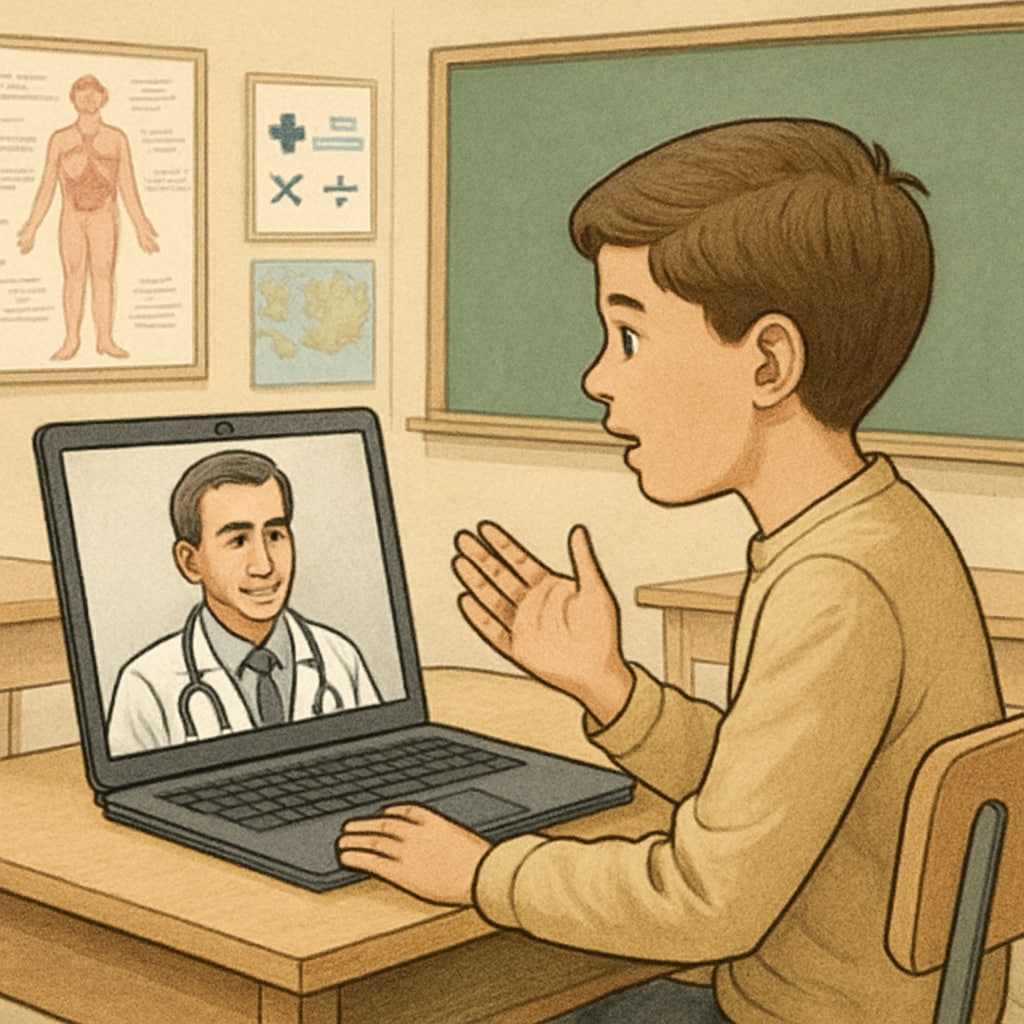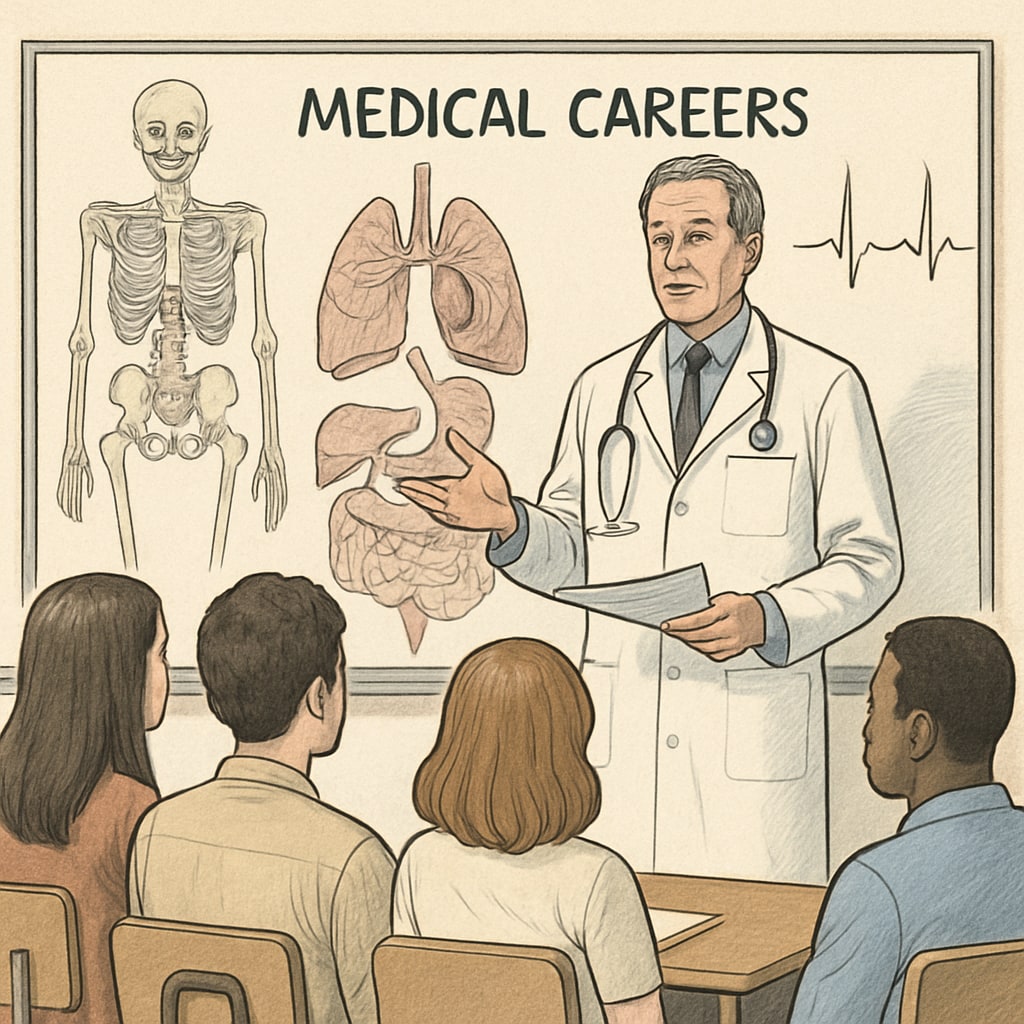Understanding the pathways to a successful medical career can be a daunting task for students. An innovative school project aims to address this by connecting K12 learners with doctors, offering a unique opportunity for career exploration. Through direct interaction, students gain insights into the realities of medical professions, while developing essential skills like critical thinking and communication. This approach not only demystifies the field of medicine but also inspires the next generation of healthcare professionals.
How Connecting with Doctors Enhances Career Exploration
The direct interaction between students and doctors is the cornerstone of this project. By speaking with medical professionals, students can ask questions about day-to-day responsibilities, required qualifications, and the challenges and rewards of the profession. This form of mentorship provides clarity and guidance that textbooks or online research alone cannot offer.
For example, a high school student interested in surgery might ask about the training process, the emotional resilience needed, or the impact of technology on modern surgical practices. Similarly, a middle schooler drawn to pediatrics might inquire about the joys of working with children and how doctors stay updated on medical advancements.
Such discussions not only enhance career awareness but also encourage critical thinking. Students learn to frame insightful questions, evaluate responses, and make informed decisions about their aspirations.

Building Lifelong Skills Through Medical Career Exploration
In addition to career insights, this project cultivates essential life skills. Communication is at the forefront, as students learn to engage in meaningful conversations with professionals. They practice articulating their thoughts clearly and respectfully, a skill that will serve them well in any field.
Critical thinking also plays a significant role. By analyzing doctors’ responses and weighing the pros and cons of a medical career, students develop the ability to assess information critically. These skills prepare them for future academic and professional challenges.
Moreover, the program fosters empathy. Listening to doctors’ experiences, especially those working in challenging areas like emergency medicine or global health, helps students understand the human side of healthcare. This holistic perspective is crucial for nurturing compassionate individuals, whether or not they choose a medical career.

The Long-Term Impact on Future Medical Talent
Programs like these are not just about immediate benefits; they have the potential for lasting impact. By exposing students to medical careers early, schools can help address the growing need for healthcare professionals worldwide. According to the World Health Organization (WHO), there is a significant global shortage of healthcare workers, and initiatives like this can inspire young talent to fill the gap.
These projects also align with broader educational goals of fostering STEM (Science, Technology, Engineering, and Mathematics) interest. Medicine is a multidisciplinary field that combines biology, chemistry, technology, and even the humanities. By exploring this career path, students gain a deeper appreciation for the interconnectedness of these subjects.
Additionally, the program can serve as a blueprint for similar initiatives in other fields, such as engineering, law, or the arts. The key is providing students with real-world exposure that bridges the gap between academic learning and professional application.
How Schools Can Implement This Innovative Project
Implementing a project like this requires collaboration and planning. Here are some steps schools can take:
- Partner with local healthcare facilities: Reach out to hospitals, clinics, and medical schools to identify professionals willing to participate.
- Utilize technology: Schedule virtual sessions to make the program accessible to students in remote areas.
- Prepare students: Encourage them to research beforehand and create a list of thoughtful questions.
- Incorporate feedback: After each session, gather students’ feedback to refine the program.
By taking these steps, schools can create a sustainable and impactful project that benefits both students and the broader community.
In conclusion, introducing K12 students to medical careers through direct interaction with doctors is an innovative way to inspire future healthcare professionals. Beyond career guidance, the project builds critical life skills and fosters empathy, laying the foundation for a well-rounded and informed generation. This initiative demonstrates how education can go beyond the classroom to prepare students for meaningful and impactful careers.


